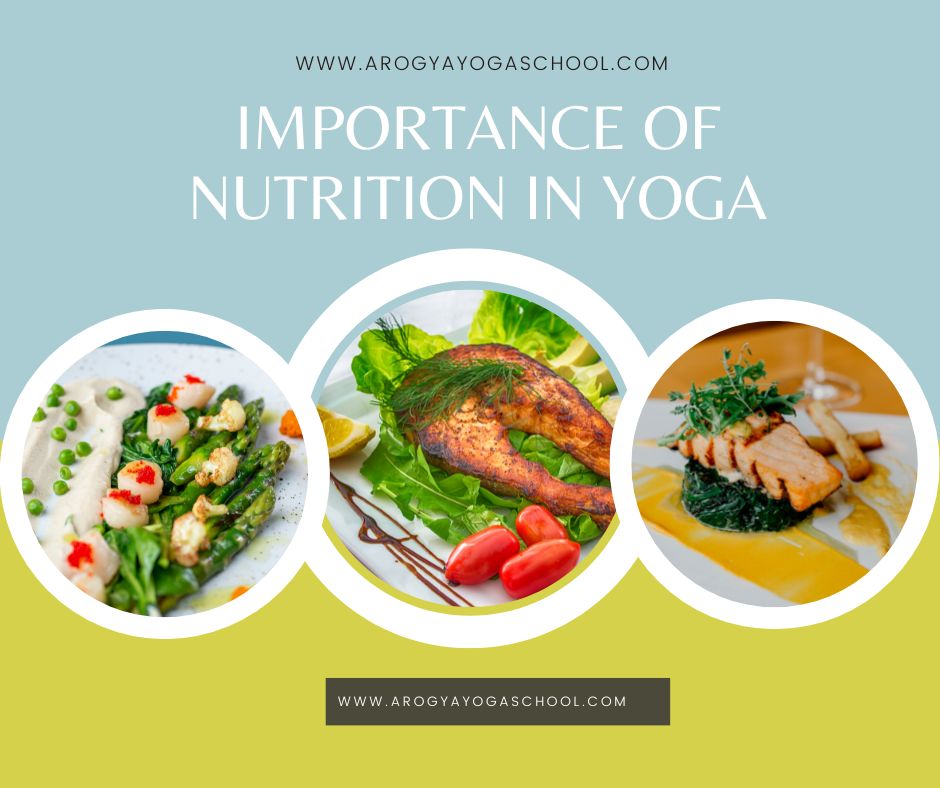
Can Nutrition Make a Difference in Your Yoga Journey
Of all the elements that play a role in your overall health and fitness, nutrition and exercise are crucial. Yoga and good nutrition can work hand in hand to balance your mind and body, supporting your emotional and physical well-being at the same time.
Yogic diet good nutrition
As you already know, eating a healthy diet supplies your body with the nutrients it needs to make any fitness plan work effectively, and that includes yoga. Your body can’t produce all of the vitamins, minerals, and micronutrients it needs, so it’s up to you to provide the fuel it needs to achieve the results you’re looking for from your yoga practice.

Not only that, but yoga is a physically demanding practice. That means your body needs even more fuel to keep your energy levels up. Providing your body with proper nutrition improves your performance in all aspects of your life. That makes proper nutrition absolutely essential to your yoga journey.
Optimizing Your Nutrition Before Your Yoga Practice
Being intentional about providing your body with the right nutrients before your yoga practice can make a huge difference in your yoga journey. As you know, many yoga poses put pressure on the abdomen, which can be uncomfortable when the food gets pushed up as you perform the moves.
While it’s important not to eat a large meal right before practice, hunger can result in mood swings and low blood sugar. That’s not good for your focus during practice and certainly doesn’t support a proper workout. Not only that, but the digestive process can interfere with increased blood circulation during yoga, which is one of the main benefits.
Therefore, choosing the right foods before practice is key. Timing is also important. Eating about one hour before your workout will give your body a chance to digest the food, but still provide it with the fuel it needs for optimum performance.
Here are some suggestions on what to eat and what to avoid before yoga practice:
- Avoid high-fat foods and animal proteins that take a long time to digest.
- Choose complex carbs, whole grains, and plant-based proteins to provide energy.
- Low glycemic index foods, such as yogurt, fruit, and fresh veggies will give energy for longer periods.
- Stay away from high glycemic index foods like sugar and processed foods, which can cause a crash and burn feeling in the middle of your practice.
- Take a multivitamin made from premium & organic vitamins with your pre-workout meal to ensure that your body has all the nutrients it needs for muscle function and recovery during and after your workout.
Nutrients That Support Your Yoga Journey + How to Boost Your Intake
- Potassium: Potassium is key because it helps the body maintain proper hydration levels. It also prevents muscle cramps and bloating. Bananas, avocados, and prunes are great sources of potassium. But you should ensure that it’s included in your daily multivitamin since many people are deficient.
- Fiber: Fiber supports weight loss, and it’s also important for preventing bloating. It also helps you feel fuller, longer and regulates blood sugar levels. Fresh fruits and vegetables are great sources of fiber and they’re a good choice for your yoga practice. They also provide hydration and natural sugars that can give you more energy with refined sugar or caffeine. Oatmeal is another great source of fiber that’s perfect for a pre-workout meal that provides lasting energy.
- Magnesium: Magnesium can be found in every cell in the human body. It is essential for regulating the central nervous system and for healthy cognitive function. Magnesium plays a key role in converting food to energy and fighting depression and chronic stress. For yoga practitioners, it’s also important for reducing inflammation and supporting muscle function. You can eat green leafy vegetables, dark chocolate, and fatty fish. But it should also be included in your daily supplement as many people are deficient in it.
- Vitamin E: Vitamin E also plays a key role in fighting inflammation, but it also improves joint flexibility. In general, it strengthens the immune system and lowers the risk of heart disease and some types of cancer. Eating leafy greens, avocados, walnuts, other nuts, and seeds, and by including it in your daily supplement regimen.
- CoQ10: The body does produce its own CoQ10, but production dwindles with age. This antioxidant is essential for cell regeneration and overall cellular health. Increasing your stores of CoQ10 may support anti-aging, improve fertility, and possibly prevent heart failure and some types of cancer. For yogis, CoQ10 is especially helpful because it reduces muscle fatigue and protects the cells from oxidative stress. Boost your intake by eating fatty fish, organ meats, and cruciferous veggies like kale and broccoli.
- Omega-3 Fatty Acids: If you’re on a plant-based diet or don’t eat a lot of fish, there’s a good chance you’re not getting enough Omega-3 fatty acids. Omega-3s are necessary for bone, brain, and heart health, as well as reducing inflammation and joint pain and stiffness. Consider adding a flaxseed, fish oil, or algae supplement to your daily routine to increase your intake.
- Vitamin B12: Vitamin B12 is necessary for many crucial body processes, including neurological function, nerve cell function, and energy production. Common signs of B12 deficiency include headaches, fatigue, depression, and heart palpitations. Yoga practitioners will want to pay attention to their B12 levels because deficiencies can also cause issues with balance.
Final Thoughts
Good nutrition not only makes a difference in your yoga journey, but it also supports your overall mental and physical health, which is why you practice yoga in the first place. Yoga and nutrition can also work together before, during, and after your yoga class to improve performance and speed recovery. It’s all part of taking control of your health in a safe, natural, proactive way.




